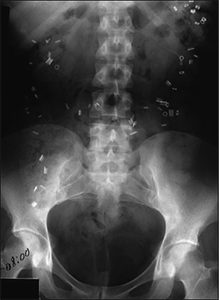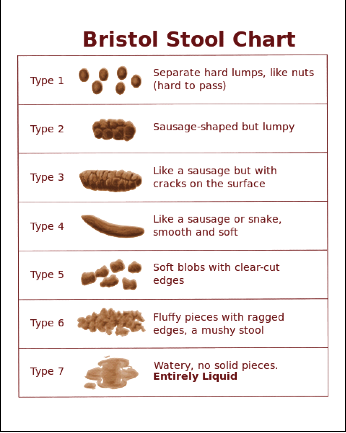
Bowel transit study
Increasing fibre intake might not always be helpful to treat constipation. There are many patients that face similar complaints for constipation. Most will take the short cut way of treating constipation via self-medication. This is due to the nature of disease that lead most to think that there is nothing wrong. Just a dose of laxative will make things right. Another factor also is that, with the availability of more and more pharmacies, especially in shopping complexes, the ease of getting the laxative over the counter, all these promote this group of patients to self-medicate.
The increasing trend of self-diagnosing themselves as constipators and also self-medicating to relieve the symptoms may result in complications such as miss diagnosed colon cancer. Patients may only come when it is too late for any proper treatment.
Below are some of the questions and answers for the general public that might shed some light regarding constipation.
What is the difference between constipation and chronic constipation?
According to Rome criteria – chronic constipation requires 2 or more of the following conditions for at least 3 months
- Straining for more than 25% of the time
- Hard stool more than 25% of the time
- Incomplete evacuation more than 25% of the time
- 2 or fewer bowel movements per week
Therefore the main difference between constipation and chronic constipation is the duration according to the patient perceptions.
What causes chronic constipation?
There are multiple causes of constipation. Details history and specific history to the patient’s complaints regarding the stool size, frequency, consistency, ease and efficacy of evacuation are needed to identify the cause.
- Lifestyle – inadequate fluid and fiber intake, inactivity and laxative abuse
- Medications – anticholinergics, antidepressants, iron, opiates
- Medical illness – neurological (stroke, Parkinson’s disease), psychological (depression, anorexia, sexual abuse, psychiatric illness), metabolic dysfunction (diabetes mellitus, hypothyroidism, hypercalcemia)
- Colonic structure / functions – cancer, Crohn’s disease, colonic inertia
- Pelvic floor abnormalities – anal stenosis, non-relaxing puborectalis
Is it true that the tendency for older people to get chronic constipation is higher?
Yes. This is due to multiple compounding factors such as degenerative diseases and medical illness ie – stroke, cancer of the colon, medications and diet alteration.
What are the symptoms for constipation?
Different patients have different symptoms regarding perception of constipation. Most common is need to strain to start bowel movement, hard stool, incomplete sensation after evacuation of bowel, reduced frequency of bowel movement such as < 2 per week.
When should I consult a doctor?
When you have symptoms of constipation, you should consult doctor as soon as possible. The reason is that constipation symptoms can mask the presence of colon cancer. One should not routinely use laxatives for constipation, as this may delay treatment.
Is chronic constipation a sign of a serious disease such as colon cancer?
Colon cancer may present in an early state only as constipation. Hence, one should not wait till the other symptoms such as weight loss, anaemia (lack of blood), tiredness and abdominal distension occurs before seeking consultation. The aim is to diagnosed colon cancer early rather that late stage.
 What are the medical tests use to diagnose chronic constipation?
What are the medical tests use to diagnose chronic constipation?
There are many tests that are used to diagnosed constipation. A very detailed history from the patient is important. Other related medical history and medication is important factor to diagnose constipation.
- A colonoscopy is important test to rule out any colonic cancer.
- A Bristol Stool Chart comparison can very well illustrate the nature of stool and constipation.
- Type 1 & 2 – are indicative of constipation
- Type 3, 4 & 5 – are the normal stool consistency
- Type 6 & 7 – are the stool which showed some sort of infection eg diarrhoea
- Bowel transit study to see if any delay in passage of stool and for the diagnosis of colonic inertia
- Pelvic floor and anorectal physiology study ie – defecography, anorectal manometry, and anal electromyography
What are the prevention steps?
Lifestyle modification – lots of fibres and fluids, increase physical activity and fitness.
Treat the cause of constipation. Eliminate the source of constipation such as side effect from the medications, reduce the intake of medication that can cause constipation.
Are there any dietary changes for people with chronic constipation?
Increase fluid intake and fiber intake such as vegetables. Bulk forming agents are a first line therapy for constipation. Bulk forming agents facilitate the size of stool bolus and make the stool softer.
Will exercise help to reduce chronic constipation?
Yes. Exercise will increase help in the increase in fluid intake, promote healthy lifestyle and increase the abdominal tone and reduce constipation.
Dr Lam Yeaw Fah is a Consultant General Surgeon and Colorectal Surgeon in Selangor.
[This article belongs to The Malaysian Medical Gazette. Any republication (online or offline) without written permission from The Malaysian Medical Gazette is prohibited.]
